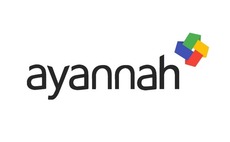
CIC's Central Huijin boosts China bank stakes
Central Huijin Investment, the unit of China Investment Corp. (CIC) responsible for holdings in the country’s major state-owned banks, has been buying shares in these lenders to boost valuations. It took similar action in September 2008 as credit markets froze in response to the Lehman Brothers collapse.
Central Huijin started making purchases on the Shanghai bourse Monday and plans to continue with "related market operations," according to a statement on its website. Its intervention prompted a spike in the banks' Hong Kong-listed stock. As of midday Tuesday, Industrial and Commercial Bank of China (ICBC) had gained 7.9%, while Bank of China (BoC), China Construction Bank (CCB) and Agricultural Bank of China (AgBank) were up 8.94%, 7% and 15%, respectively.
ICBC, BoC and CCB were all trading at levels not seen since the global financial crisis. AgBank didn't list until July 2010 but is still trading below its IPO price.
Central Huijin bought 14.6 million shares in ICBC, 7.38 million shares of CCB, 39.1 million shares in AgBank, and 3.5 million shares in BoC, the banks said in separate statements to the Hong Kong Stock Exchange yesterday. Purchase prices were not disclosed, but it would have cost Central Huijin about RMB197.5 million ($31.1 million) based on Monday's closing prices, according to Bloomberg. The CIC unit sold RMB40 billion in bonds in August.
Prior to the transactions, Central Huijin held 35.4% of ICBC, 57.1% of CCB, 40% of AgBank and 67.6% of BoC.
Central Huijin transferred from the central bank to CIC in 2007, with bonds issued to the former to compensate it for the transfer. CIC said it would use dividend payments from the banks to make payments on the bonds. Since then, the banks have been paying out roughly half of their earnings in dividends, compared to 10-12% for many other Chinese companies, The New York Times reported. CIC has said Central Huijin needs RMB300 million a day to pay the interest on the bonds.
However, the banks are also under pressure from regulators to raise capital in order to strengthen their balance sheets and comply with international standards on capital adequacy. The banks plan on returning to the market with rights issues and this puts pressure on existing shareholders, which include several foreign sovereign wealth funds, to participate or face seeing their holdings diluted.
This situation complicated Bank of America's exit from half of its holding in CCB in August as several of the parties it reportedly approached as potential buyers - including Kuwait Investment Authority (KIA) - wanted to keep their powder dry to participate in forthcoming rights issues.
A Chinese consortium comprising the State Administration of Foreign Exchange, the National Council for Social Security Fund (NSSF) and CITIC Securities ended up leading the purchase of BofA's 5% stake for $8.3 billion. Temasek Holdings - which sold down its stake in BoC in July - and Qatar Investment Authority were also involved in the transaction.
Latest News
Asian GPs slow implementation of ESG policies - survey
Asia-based private equity firms are assigning more dedicated resources to environment, social, and governance (ESG) programmes, but policy changes have slowed in the past 12 months, in part due to concerns raised internally and by LPs, according to a...
Singapore fintech start-up LXA gets $10m seed round
New Enterprise Associates (NEA) has led a USD 10m seed round for Singapore’s LXA, a financial technology start-up launched by a former Asia senior executive at The Blackstone Group.
India's InCred announces $60m round, claims unicorn status
Indian non-bank lender InCred Financial Services said it has received INR 5bn (USD 60m) at a valuation of at least USD 1bn from unnamed investors including “a global private equity fund.”
Insight leads $50m round for Australia's Roller
Insight Partners has led a USD 50m round for Australia’s Roller, a venue management software provider specializing in family fun parks.








